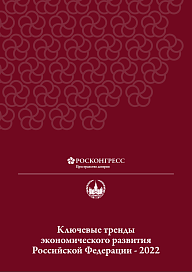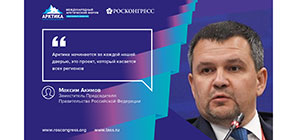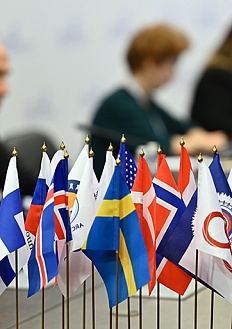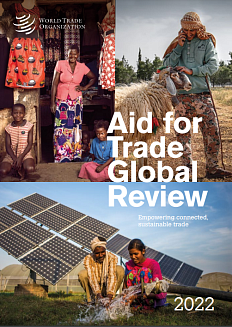The Roscongress Foundation, together with the NTI Competence Center for Big Data Storage and Analysis Technologies, based at Moscow State University named after M.V. Lomonosov, based on the content of the key discussions of the programs of the largest business events in the country the St. Petersburg International Economic Forum, the Russian Energy Week and the Eastern Economic Forum, prepared a report «Key Trends in the Economic Development of the Russian Federation 2022», which formulated 10 main trends in the countrys economic development.
Analysts of the Roscongress Foundation have identified the main theses of this study, accompanying each of them with a relevant piece of video broadcasts of panel discussions held as part of the business programs of key events held by the Foundation.
The intensification of foreign economic relations with Asian countries requires the solution of many infrastructure and logistics tasks.
Against the backdrop of sanctions pressure from unfriendly countries, the trade turnover of the Russian Federation with the countries of the Asia-Pacific region is growing, primarily with China as the largest economy in Asia. In 2020, the volume of trade between the Russian Federation and China amounted to 108.16 billion US dollars and by 2021 has grown by more than a third. The same indicator for 10 months of 2022 is 4.8% higher than the indicator for 2021. The target planned value of the volume of trade between the Russian Federation and China is 250 billion US dollars by 2024. A similar trend is observed in the case of India.
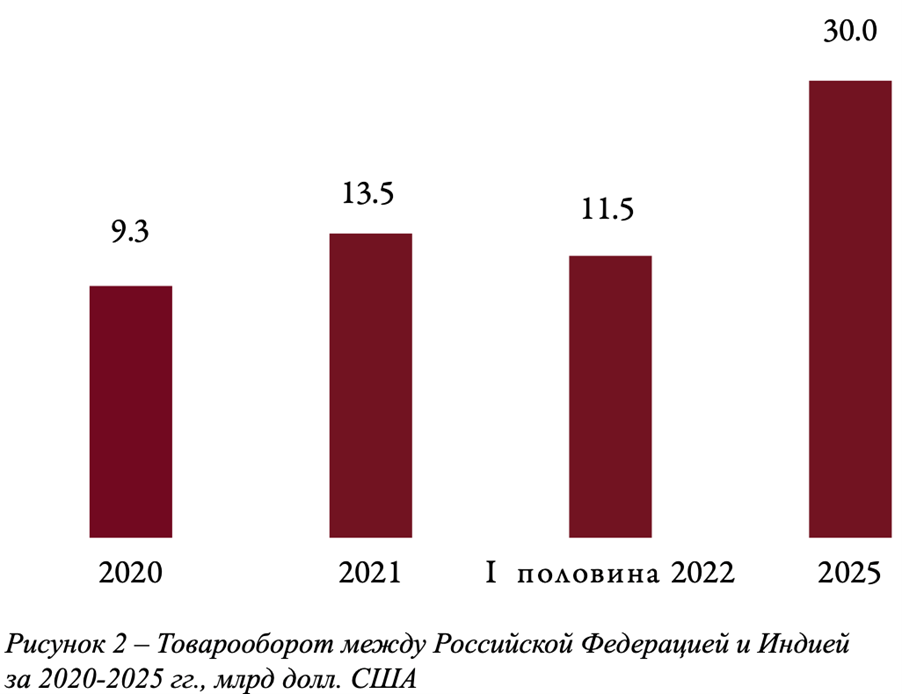
A necessary condition for the development of trade relations with the countries of the East is the expansion of the logistics capabilities of the Russian Far East and the Arctic. The elimination of existing infrastructure restrictions will become a new driver for the Far Eastern economy and will ensure an influx of investments, incl. external. A significant contribution to the creation of new logistics corridors will be the implementation of socio-economic development initiatives until 2030, approved by the Government of the Russian Federation the State Program of the Russian Federation «Development of the transport system».
Technological sovereignty has become a key condition for the implementation of projects for the digitalization of economic and social sectors of Russia.
Digitalization is relevant and necessary in the widest range of socio-economic tasks. At present, plans for the digital transformation of transport and logistics, healthcare, education, agro-industrial complex, construction, public administration, etc. are already being implemented. Under the conditions of external restrictions, the implementation of these plans is associated, among other things, with a set of measures for import substitution, achieving technological sovereignty and ensuring cyber security.
Among such measures, it is worth highlighting the TechNet 4.0 action plan of the National Technology Initiative. In March 2022, the Decree of the President of the Russian Federation «On Measures to Ensure the Technological Independence and Security of the Critical Information Infrastructure of the Russian Federation» was also adopted, prohibiting the use of imported software by public authorities at critical information infrastructure facilities from 2025. In addition, in May 2022, the President of the Russian Federation signed Decree No. 250 dated May 1, 2022 «On additional measures to ensure the information security of the Russian Federation», according to which special units involved in the detection of, prevention and elimination of information attacks.
The year 2022 has brought serious disturbances to the energy markets, which require maximum diversification in both production and consumption of energy and energy carriers.
The increased sanctions pressure, as well as the embargo on technology, radically affected the work of companies in the oil and gas sector of the Russian Federation in 2022, which faced the need to quickly reorganize the main business processes and increase the level of their own economic and technological security. The introduction by Western countries of restrictions on the import of Russian oil and gas products contributes to the expansion of trade relations between domestic companies and the countries of the Asia-Pacific region. According to experts, this will allow not only maintaining the level of revenues from the oil and gas sector, but also increasing them compared to 2021.
It is necessary to continue the implementation of the Energy Strategy of the Russian Federation for the period up to 2035. It involves structural diversification of the energy complex, during which carbon energy will be supplemented by non-carbon energy, the range of electrical energy use will expand, and the negative impact of the fuel and energy complex on the environment will decrease. It should be noted that the energy balance of the Russian Federation is one of the lowest carbons in the world. more than 33% of electricity generation comes from nuclear power, hydropower and other renewable energy sources, and cleaner technologies based on natural gas are being developed.
Nuclear energy is a reliable way to generate electricity, among the advantages of which there are minimal consequences for the climate and the environment. Despite such barriers as the high cost of preparatory work, increased safety requirements and high operating costs, which affect the price of electricity for the consumer, experts from the International Atomic Energy Agency predict an increase in the share of nuclear energy in the global electricity balance in the coming decades. The share of electricity generated by 11 nuclear power plants is 20% of the total electricity generation in the Russian Federation, and the volume of energy generation by small nuclear power plants is growing.
We also invite you to familiarize yourself with other materials posted in special sections of the Roscongress Information and Analytical System Power Generation, Mobility and Digitalization dedicated to the development of the Russian economy.


